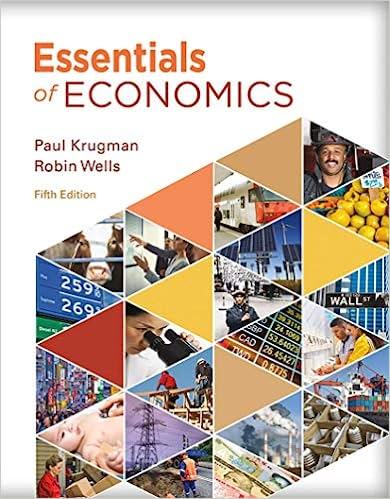Officially, PayPal, the electronic fundstransfer firmwhich is also the owner of Venmo, a mobile-phone payment service that
Question:
Officially, PayPal, the electronic funds–transfer firm—which is also the owner of Venmo, a mobile-phone payment service that has become extremely popular—isn’t considered a bank. Instead, regulators consider it a money transmitter, an entity that sends your money someplace rather than holding it and keeping it safe.
However, as users accumulate substantial sums in their PayPal accounts, that distinction has started to look questionable. Venmo users, in particular, often seem willing to let incoming payments sit in their accounts until the funds are spent. As a result, PayPal’s accounts were estimated to total more than $13 billion in 2016. If those billions were considered bank deposits, PayPal would be considered among the 50 largest banks in the United States.
At first glance, leaving significant sums in PayPal accounts seems counterintuitive for two reasons. First, these accounts aren’t protected by federal deposit insurance. Second, they pay no interest. But upon closer examination, this behavior makes good economic sense.
People will typically hold only a tiny fraction of their wealth in their PayPal account, thereby making the lack of federal deposit insurance an acceptable risk. And interest rates on bank accounts are so low at the time of this writing (around 0.06% in Spring 2019) that losing that interest is a reasonable price to pay to avoid the hassle of moving funds back and forth between a bank account and a PayPal or Venmo account.
The result is that many people are behaving like one user quoted by the Wall Street Journal, who now waits a while before transferring funds out of her Venmo account to her regular bank account: “I’m starting to intentionally keep my money in there a little bit longer.”
But will PayPal/Venmo or something like it begin to make major inroads into traditional banking? Some analysts think so. Others suggest, however, that conventional banks will find ways to make mobile payments easier, and that rising interest rates will lure customers back to conventional bank deposits. Time will tell.
Questions:-
1. PayPal accounts aren’t counted as part of the money supply. Should they be?
Why or why not?
2. In 2010, only around 25% of mobile phones in the United States were smartphones. In 2017, that number increased to more than 80%. How does this situation play into the PayPal story, and how does it fit into the broader pattern of monetary history?
3. How might future actions by the Federal Open Market Committee affect the future of PayPal and similar services?
Step by Step Answer:






